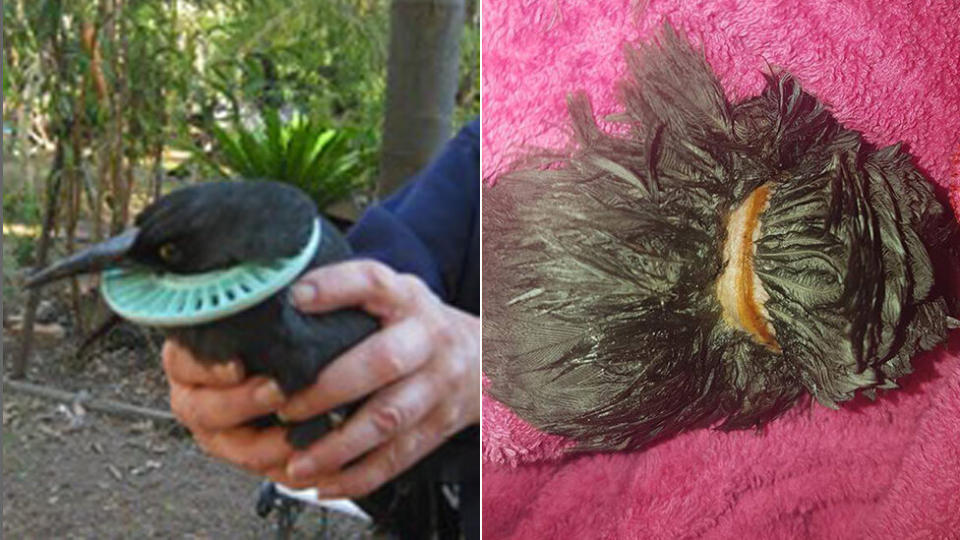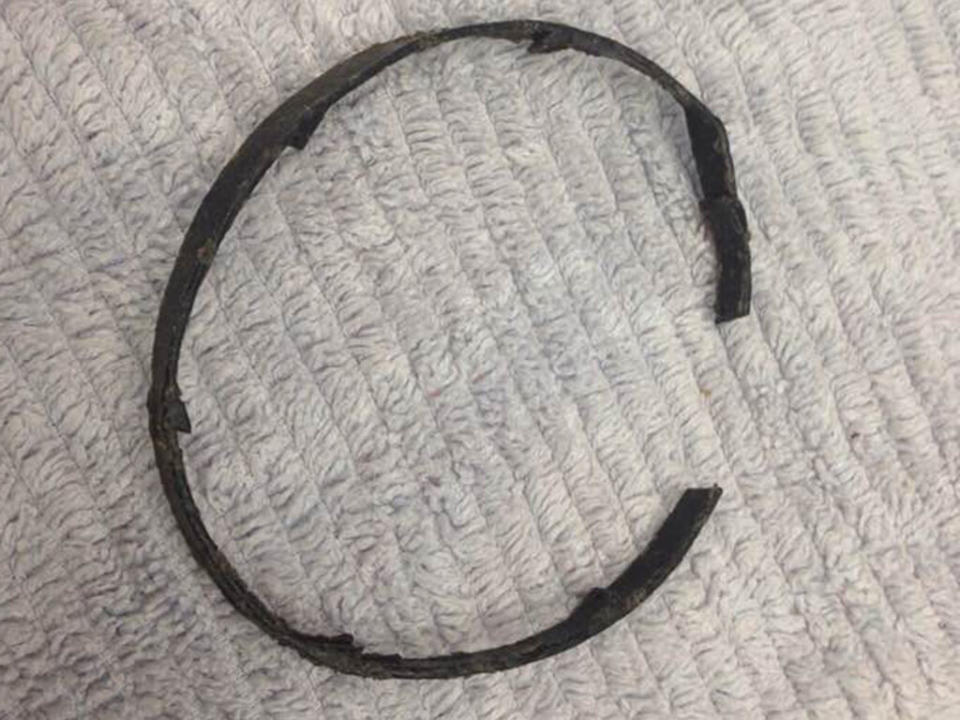Wildlife carers warn of common household items that could kill animals
A wildlife rehabilitation centre has warned people to dispose of their rubbish with more care after two animals were rescued in the same week with plastic rings that almost killed them.
A quenda bandicoot was bought to the Kanyana Wildlife Rehabilitation Centre at Lesmurdie, in Perth’s east, with a plastic container ring caught around its chest and front legs.
In the same week, a grey currawong was admitted with a plastic pool filter constricted so tightly around the bird’s fragile neck that it left a deep wound.
Hospital manager Tasha Hennings told Yahoo News Australia the centre regularly treated animals with household items, such as cans or milk bottle rings, caught around them.

The bird damaged his beak from struggling to remove the tight ring himself.
Locals spotted the bird and used food to lure the wild bird into netting.
“He was quite hungry from being unable to eat,” the rehabilitation centre posted.
The lucky bird is currently healing well and “so far, so good”, Ms Hennings told Yahoo News Australia.
Staff are hopeful the currawong will be able to be released back into the wild within two weeks.
The centre posted the images of the injured wildlife on Facebook, and urged the public to secure rubbish and cut discarded plastic rings to allow trapped animals to free themselves.

Luckily the quenda was brought in for treatment before the plastic could cause any serious damage and was released the same day.
But the animal rescue centre said this was not an isolated case.
“We have had many other quenda who required weeks of care with surgery and sutures to recover from deep cuts caused by plastic rings,” the wildlife centre posted.
Followers responded to the post with support and called for more awareness to prevent future injuries.
“I've been telling people please cut the plastic rings for our wildlife,” one person wrote.

Another person commented it was not just West Australians that needed a reminder to dispose of plastic with common sense.
“This post needs to be a full-page newspaper ad. Nationally,” the person said.
The centre said it was “a sobering thought how many of our patients are injured due to human causes, especially such easily preventable ones like this”.
One fellow wildlife lover said she would help spread the message, adding: “I always cut the rings, I'm trying to teach everyone at work to do it too.
“Every little bit counts.”
Do you have a story tip? Email: newsroomau@yahoonews.com.
You can also follow us on Facebook, download the Yahoo News app from iTunes or Google Play and stay up to date with the latest news with Yahoo’s daily newsletter. Sign up here.



